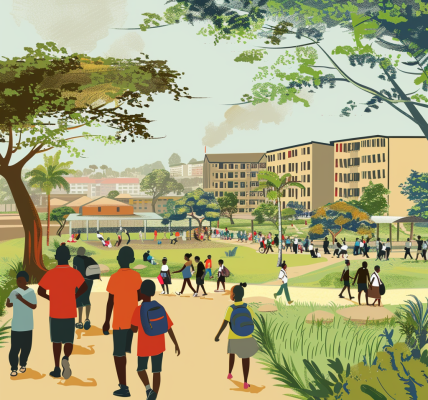CLIMATE & ENVIRONMENT
The Interconnected Crises: Global Biodiversity Loss and Climate Change
By: Salman Akhtar
Published: January 16, 2024 at 8:42 pm EST | Updated: Jan 17, 2024 at 8:36 am EST
In a powerful plea echoed across 200 health journals, the medical fraternity has implored key players, including the United Nations, health professionals, and political leaders, to acknowledge the deep-rooted connection between global biodiversity loss and the climate emergency. The World Health Organization (WHO) has been called upon to declare this intertwined crisis as a global health emergency prior to the 77th World Health Assembly in May 2024.
The Concept of Planetary Health
The notion of planetary health underscores the mutual dependence of the natural world, where damage to one component can have a harmful ripple effect. The escalating global temperatures have been associated with a surge in wildfires, diminished carbon sequestration, and amplified soil erosion rates. These repercussions, in turn, fuel global warming and biodiversity loss. Research indicates that climate change may play a larger role in biodiversity loss than deforestation or changes in land use.
Resilience of Natural Systems
Nevertheless, nature has demonstrated its resilience. Phenomena such as marine phytoplankton functioning as carbon sinks and rapid vegetation regrowth on deforested land exemplify this. The utility of traditional indigenous practices for managing natural resources has also been highlighted, showing promise for ecosystem regeneration and restoration.
Impacts on Human Health
The editorial accentuates that both the climate and biodiversity crises have harmful effects on human health, leading to the spread of disease vectors, air pollution, extreme weather events, and a rise in waterborne diseases due to pollution. Food security also stands threatened as environmental decline affects the availability of plant and fish species. The COVID-19 pandemic stands testimony to how increased human intrusion into natural habitats can result in pathogen spillovers and the emergence of new diseases. Furthermore, biodiversity loss may curtail the discovery of new medicines derived from yet-to-be-discovered species. These impacts disproportionately afflict vulnerable communities, aggravating social, economic, and health disparities.
Fostering an Integrated Approach
Despite the interconnected nature of these issues, global initiatives addressing climate change and biodiversity loss have traditionally operated in silos, with separate research communities for each. However, there is a burgeoning consensus for a harmonized approach. The upcoming 28th Conference of the Parties (COP) on climate change in Dubai in 2024 and the 16th Biodiversity COP in Turkey provide crucial junctures for such integrated efforts. The editorial underscores the need for political leaders and citizens alike to perceive t





